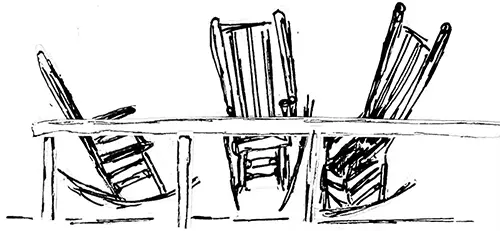Local Culture 12
From the Editor: Local Culture 7.1
There is no law preventing us from being worthy pupils of the spring rains, the dead, and the plants. We can mind first principles; we can keep our hands off…
Civility and Civic Virtue
We might at least keep in mind the importance of proximity and presence and real encounters of flesh and blood. For the messy business of politics let us have Chesterton’s…
From the Editor
There is something Augustinian in Lukacs’ view of the past—that in a real sense, or at least in a manner of speaking, it exists only in the present, for it…
From the Editor–Local Culture 5.2
Friendship may also be an art that invites our probing, if also by inviting resists it. Careful study of any great work of art gives way to knowledge, and knowledge,…
From the Editor — Local Culture 5.1
here are many such images, as many images as there are places where good folk deep in this life perform the communal rites of place. Several of them are collected…
From the Editor–Local Culture 4.1: The Civil Dissent Issue
Think not, then, of the ubiquitous screens and hideous architecture and suburban metastasis and microwave dinners. Think rather of Eric Voegelin’s famous quip—Voegelin, who said that “no one is obliged…
From the Editor–Local Culture 3.2: The Higher Ed Issue
Jason Peters contrasts the traditional telos of education, what John Newman called "a great but ordinary end" with the current emphasis on utility and constant social change.
From the Editor–Local Culture 3.1: The Arts of Region and Place
Is only the life of the busy and bustling place, the place of mergers and acquisitions, worthy of story and song and canvas?
Limits, Risk Aversion, and Technocracy
What about Lasch’s analysis of limits? I have in mind two contemporary cultural developments, the rise of technocracy and our extreme aversion to risk, that seem to challenge certain aspects…
From the Editor–Local Culture 2.2: Christopher Lasch
Over and against manifest follies that characterize American life in the first quarter of the twenty-first century there stands the wide-ranging work, keen and voluminous, of the historian and social…
From the Editor–Local Culture 2.1
Although the basic principle of widely distributed property may be known and competently grasped—it is a tune that in America had been played in a Jeffersonian key, after all—it is…
From the Editor–The Inaugural Issue of Local Culture
And so in 2019, at the tenth annual FPR conference marking FPR’s tin anniversary, we are pleased to bring out the first issue of Local Culture: A Journal of the…



